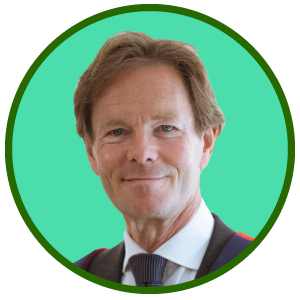Session 2: Conflict with Nature: Navigating Climate Change Challenges for the Older Person
Climate change is posing significant risks to elderly populations, affecting their health, safety, and overall well-being. As extreme weather events, rising temperatures, and other environmental changes become more frequent, older adults face unique challenges that exacerbate their vulnerability. This session will explore the specific impacts of climate change on the elderly and discuss strategies to address these challenges. We will examine adaptation measures, policy responses, and practical solutions to safeguard the well-being of older individuals in an increasingly uncertain climate.Read More!
Discussion Questions:
- What are the primary ways in which climate change is impacting the health and safety of elderly populations, and what unique challenges do they face?
- What adaptation strategies and policies can be implemented to protect older adults from the adverse effects of climate change?
- Should resources for climate adaptation be prioritized differently for older adults compared to other age groups, and if so, why or why not?
- How can communities and governments work together to address the specific needs of the elderly in the context of climate change, and what role can innovation play in these efforts?
Moderator:

Prof. Dr. Mokbul Morshed Ahmad,
Professor in Development Planning Management and Innovation, School of Environment, Resources and Development, Asian Institute of Technology
Speakers:

Important points:
- Urbanization and Climate Trajectory:
The acceleration of urban development since the 1950s, driven by fossil-fuel-based extraction, has caused environmental overshoot. Cities now consume more than their ecological footprint allows, leading to cascading effects on the climate and biosphere. - Pollution and Public Health Crisis:
Air pollution, particularly in megacities like New Delhi, is now a life-course issue, affecting humans from conception to death. It causes asthma, cardiovascular diseases, and cognitive decline, especially in children and the elderly. - Microparticle Danger (PM2.5 and PM0.1):
Fine particulate matter penetrates lungs and enters the bloodstream, causing systemic diseases. Vulnerable populations like the elderly are less able to detoxify or withstand these pollutants due to declining organ function. - Environmental Justice and Policy Failure:
Most polluted schools in London (2010) were in poor areas, demonstrating socioeconomic injustice. Current environmental policies are inadequate. While solutions (urban greenery, public health initiatives) are known, implementation lags behind. - Call for Multi-Level Action:
Solutions must be multi-pronged—biomedical treatment, public health intervention, urban planning (like tree canopy expansion), and stronger political will. Holgate’s 14 recommendations point toward integrated change.
1. Dr. Layne Hartsell,
Research Professor at the Asia Institute and at the Center for Science, Technology, and Society, Department of Philosophy, Chulalongkorn University

Important points:
- Older People Are Disproportionately Affected:
As climate risks increase—floods, heatwaves, disease—older adults face mobility limitations, health vulnerabilities, and difficulty accessing shelter, food, and care services. - Voices and Needs Are Excluded from Planning:
Emergency systems and disaster response mechanisms rarely consider the needs of the elderly. Urban and climate planning often overlooks older populations, reinforcing structural ageism. - Elder Wisdom and Resilience Capacity:
Elders hold ecological and cultural knowledge that can aid adaptation. In Nepal and South Korea, they lead initiatives in irrigation and legal climate action, showing their potential as change agents. - Triple Challenge and Triple Role:
Elders contribute to emissions, suffer more from climate events, and yet also hold potential as community leaders. Strategies must address all three roles equitably. - Intergenerational Collaboration and Life-Course Resilience:
Climate resilience should be built from youth to old age. Elderly inclusion in urban design and intergenerational knowledge exchange is key to sustainable, age-friendly cities.
2. Dr. Gary Haq,
Senior Researcher at the Stockholm Environment Institute (SEI) at the University of York, England

Important points:
- Carbon Emissions Need Better Reporting:
Current emission reports rely on industry averages, not actual activity. Accurate data collection through company software systems would enable realistic tracking and action. - Oxford Commission on Sustainability Data:
Michie chairs a global commission promoting verifiable carbon auditing. Cities and companies can participate to improve emissions management and reduce environmental harm. - Lifelong Learning Must Be Centralized:
Aging societies require educational systems that include learners of all ages. Lifelong education improves economic participation, social well-being, and civic engagement. - Universities Must Evolve:
Institutions must shift from youth-focused models to multi-age inclusive learning. Universities should collaborate with employers and governments to make learning accessible at any age. - Global Study Supports the Shift:
A study with 10,000 learners and 1,000 employers confirmed the demand for education beyond early adulthood. The university association for Lifelong Learning aims to institutionalize this change.
3. Prof. Jonathan Michie,
Pro-Vice-Chancellor of the University of Oxford and President of Kellogg College, University of Oxford

Important points:
- Elder Vulnerabilities Are Overlooked:
Seniors on medication, with slow physiological responses, and cognitive decline are at greater risk during extreme events like heatwaves and floods. This includes risks from power outages impacting medical devices. - Tech Must Partner with Local Communities:
Innovations in AI and hardware are important, but they must align with community-based care to be effective. High-cost elder homes aren’t accessible to most; community networks are more adaptable. - The Role of Community Gardens and Informal Networks:
Collective gardens (like in Japan) and community initiatives can provide food, companionship, and psychological support for isolated or poor elderly people. - Global Examples of Local Wisdom:
Traditional community-led water systems in India and land management practices in Japan show that communities can sustain themselves through collective resilience and shared responsibility. - Equity and Inclusion at the Center:
The poorest and most isolated elderly people require special attention in planning. Solutions must be affordable, culturally grounded, and built from the bottom up, not just top-down policy.
4. Mr. Thibault Danjou,
International Consultant, Member of the Investment Committee of Phitrust Asia, Expert for the European Commission, MBA University of Chicago

Important points:
- Climate Change Threatens Human Security:
Danjou emphasized the UN definition of human security: freedom from fear, want, and indignity. Aging populations are at high risk across all three dimensions due to climate-related stressors. - Digital Elder Care Models in China:
China has pioneered community-based eldercare models using digital tools for health monitoring. However, these services are often expensive, creating a divide in access based on income. - Cultural Infrastructure and Policy Support:
Local governments in cities like Hangzhou are converting factories into elder cultural centers. However, financing and equitable access remain major challenges. - BRI and Cross-Cultural Impact:
China’s Belt and Road Initiative has both positive and negative impacts—while it provides jobs and infrastructure, it also creates socio-environmental risks that must be mitigated carefully. - Call for Cross-Sector Collaboration:
Stakeholders from academia, government, business, and civil society must collaborate to address aging and environmental challenges, balancing innovation with inclusion.
5. Prof. Dr. Zhou Zhanggui,
Secretary General of the International Collaboration Mechanism for Overseas Safety and Security (OSS), Senior Research Fellow at the Center for Non-Traditional Security and Peaceful Development Studies, Zhejiang University, China
